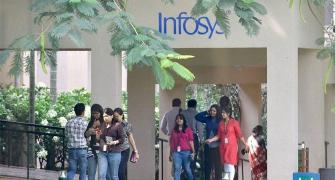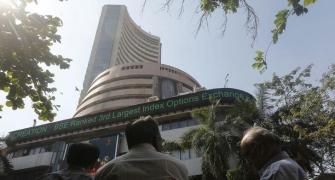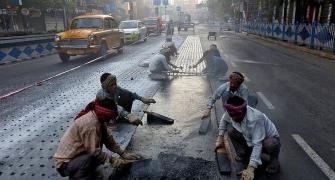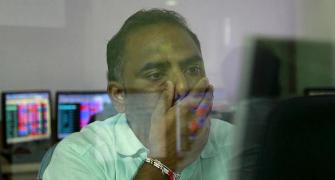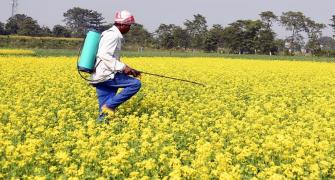India hopes to increase its share in the quotas of multilateral development banks like the International Monetary Fund and Asian Development Bank after major stakeholders in them bring forward the issue of quota review and expanding in accordance with current realities that will give proper representation to the emerging economies.
Indian sources are upbeat about such a development in the context of the just-concluded Summit of the 20 industrialised and emerging economies which have agreed to expand the resources of the IMF and ADB and to also bring forward the quota review in the IMF.
The Indian side is also conscious of the fact that such a review was not going to happen overnight but was sure that it cannot be postponed for long.
Prime Minister Manmohan Singh himself indicated as much when he said at the end of the Thursday Summit that India can consider increasing the contribution to IMF in proportion to its quota though it has not visualised approaching the institution for borrowing in the near future.
India is also not unduly worried about, what some analysts say, is the "growing weightage" for China in institutions like the IMF as it feels that China is definitely a stronger and bigger economy than India but both have their "own strengths and weaknesses".
The official communique issued at the end of the Summit recognised the importance of the issue when it said that alongside the significant increase in resources agreed, the G-20 countries were determined to reform and modernise the international financial institutions to ensure they can assist members and shareholders effectively in the new challenges they face.
"We will reform their mandates, scope and governance to reflect the changes in the world economy and the new challenges of globalisation, and that emerging and developing economies, including the poorest, must have greater voice and representation."
Towards this end, the leaders pledged to implement the package of IMF quota and voice reforms to complete the next review of quotas in the IMF by 2011.
Delegates said the present governing structure in these Multilateral Development Banks was not in favour of countries like India and the contents of the communique have come as a "silver lining" for emerging economies.
As a beginning, the G-20 has admitted countries like India and Brazil forming the BRIC grouping into the Financial Stability Board replacing the existing financial stability forum to strengthen the financial system. India has also got entry into the Basle Committee on banking norms.
Sources said that once the review of the quota is completed India's share in the IMF may double from the present two per cent.
In the ADB, India, which is the largest borrower, will consider accessing it for more loans once the quota issue is reviewed which may be finalised next year.
As for questions regarding China's contribution of $40 billion in the G-20 decision to place $250 billion from the IMF money to poor countries for the economic stimulus and why India did do a corresponding act, the sources said that was an ad hoc on the spot decision of the Summit and India did not want to make a "grand statement".
New Delhi is keen on husbanding its resources estimated at $250 billion in foreign exchange. Japan contributed $100 billion, EU $100 billion and a few others contributed a sum of $10 billion.
On the outcome of the Summit, Indian sources said apart from the need to reform the financial system, New Delhi is satisfied that there was realisation that it should help global economy recover and become normal and that the multilateral banks should help poor countries with balance of payments crisis to overcome their difficulty.
On protectionism, the sources said the attempt at the Summit was to see that there should not be a "sudden and high wave" of barriers in view of the current difficulties though there was realisation that countries would raise walls "within some norms" or within WTO guidelines to protect their interests.
On the issue of tax havens, which the G-20 has threatened to "name and shame", the Summit decided to crackdown on non-cooperative jurisdictions and that countries should cooperate. The Summit decided to crack down on the tax havens.



